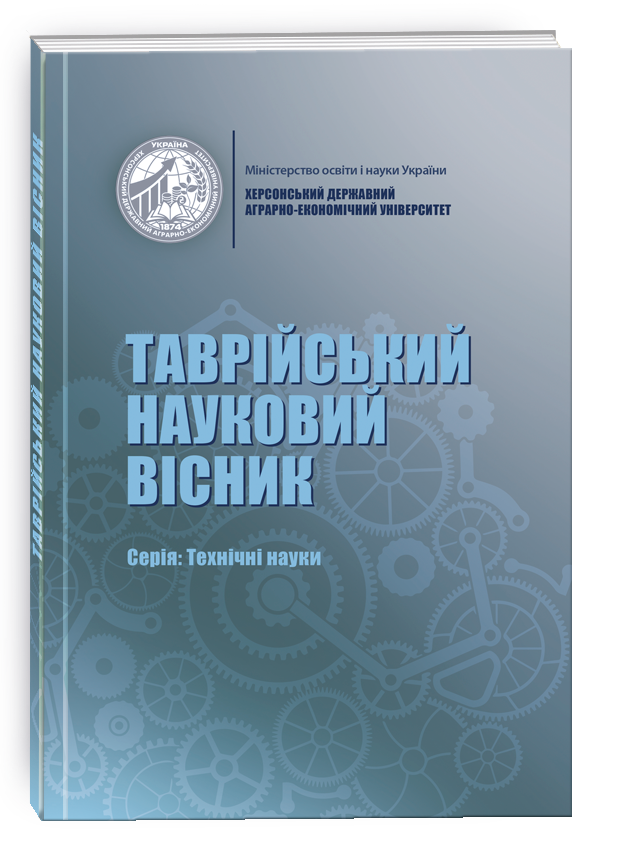TECHNOLOGY OF DESIRED DESSERTS WITH DIET SUPPLEMENTS
DOI:
https://doi.org/10.32851/tnv-tech.2022.4.5Keywords:
nutritional value, dessert, food technology, low-esterified pectin, calcium citrate, polydextrose, vitamins, minerals.Abstract
The article presents the production technology, recipe for dessert "Bird’s milk" with low-esterified pectin, calcium citrate and polydextrose. The expediency of using biologically active raw materials in the developed technology is substantiated. A set of data characterizing the quality of the developed dish is obtained, its high nutritional value is proved. Based on studies of organoleptic parameters of the developed samples, the rational concentration of dietary supplements in the dessert recipe was determined, which gives the developed food products improved taste and consistency compared to control through the use of biologically active raw materials. Developed technology of dessert "Bird’s milk" with low esterified pectin, calcium citrate and polydextrose has a high content of dietary fiber, vitamins and minerals compared to traditional technology. The optimal ratio of components in the recipe of the developed dessert "Bird’s milk" has been experimentally confirmed. According to organoleptic indicators, the obtained "Bird’s milk" meets the quality standards. The proposed method of production of dessert "Bird’s milk" with low esterified pectin, calcium citrate and polydextrose allows to obtain products of higher nutritional value compared to traditional technology. The quality of finished culinary products is characterized by organoleptic, physicochemical, biochemical and microbiological indicators, and a comprehensive quality indicator was used to unambiguously assess the quality. The social effect of the implementation of the developed dessert "Bird’s milk" with low esterified pectin, calcium citrate and polydextrose is to expand the range of foods for adults and children with high content of essential nutrients, improved consumer properties, which will help protect the health of the population from the negative impact of the environment. Developed culinary products can be recommended for nutrition in the daily diets of people working in heavy industry, living in environmentally contaminated areas and all segments of the population.
References
Мазаракі А.А. Технологія харчових продуктів функціонального призначення. Київ : КНТЕУ. 2012. 1116 c.
Львович И.Я. Перспективные тренды развития науки: техника и технологии. Одеса : КУПРИЕНКО СВ. 2016. 197 c.
Корзун В. Н., Гаркуша С. Л. Заходи профілактики та лікування метаболічного синдрому у населення. Довкілля та здоров’я. 2016. №. 1. С. 9–13
Черевко О.І. Інноваційні технології харчової продукції функціонального призначення. Харків : ХДУХТ. 2017. 591 c.
Yatsenko V.M. Financial-economic and innovative support of entrepreneurship development in the spheres of economy, tourism and hotel-restaurant business. Agenda Publishing House, Coventry, United Kingdom. 2017. 619 c.
Русавська В.А. Теоретико-практичні підходи до ефективного функціонування ринку готельно-ресторанних послуг: стан, проблеми, тенденції. Київ : Видавництво Ліра. 2018. 420c.
Преображенский А.П. Уровень развития техники и технологии в ХХI веке. Одеса : КУПРИЕНКО С.В. 2019. 227c.
Гамаюнова В.В. Инновационные технологии в жизни современного человека. Одесса : КУПРИЕНКО СВ. 2020. 209c.
Химический состав российских пищевых продуктов: Справочник / Под. ред. член-корр. МАИ, И.М. Скурихина и академика РАМН, проф. В.А. Тутельяна. М. : ДеЛи принт, 2002. 236 с.
Сборник рецептур блюд и кулинарных изделий для предприятий общественного питания. Издательство: «Экономика», Москва, 1982. 495 c.
Мазаракі А.А. Збірник рецептур кулінарної продукції і напоїв функціонального призначення. Київ : Київ. нац. торг.-екон. ун-т, 2013. 772 с.
Brovenko T. Food design as the actual direction of the interdisciplinary researches. Вісник Національної академії керівних кадрів культури і мистецтв: наук. журнал, 2018. № 2. С. 91-94.
Земліна Ю.В. Технологія борошняних страв на основі нетрадиційної сировини. Науковий журнал «Вчені записки» ТНУ ім. В.І. Вернадського. Серія «Технічні науки». Том 30 (69). 2019. №4. С. 77-82.
Криворучко М.Ю. Структурно-механічні властивості прісного тіста з борошна пророщеного зерна пшениці. Міжнар. наук.-практ. журн. «Товари і ринки». 2012. № 1. С. 82–88.
Михайлик В.С. Технологія та якість печива зі шротами олійних культур. Харчова наука і технологія: науково-виробничий журнал. 2016. № 1. С. 72–77.
Кравченко М.Ф., Криворучко М.Ю. Структурно-механічні властивості прісного тіста з борошна пророщеного зерна пшениці. Товари і ринки : міжнародний науково-практичний журнал. 2012. № 1. С. 82–88.
Антоненко А.В. Борошно з пророщеного зерна вівса як основа для борошняних кондитерських виробів. Наукові праці Одеської національної академії харчових технологій. 2014. № 46 (1). С. 149–153.
Журавська А.А. Новітні технології кондитерських виробів підвищеної харчової цінності. Научные труды SWorld. 2013. № 1. С. 73–77.
Довга О.О., Ліфіренко О.С. Удосконалення технології борошняних кулінарних виробів для харчування дітей. Научный взгляд в будущее : международное периодическое научное издание. 2016. № 3. С. 4–11.
Кравченко М.Ф. Наукове обгрунтування і розроблення фруктових систем як основи для солодких соусів. Міжнар. наук.-практ. журн. «Товари і ринки». 2009. № 2. С. 76–82.






